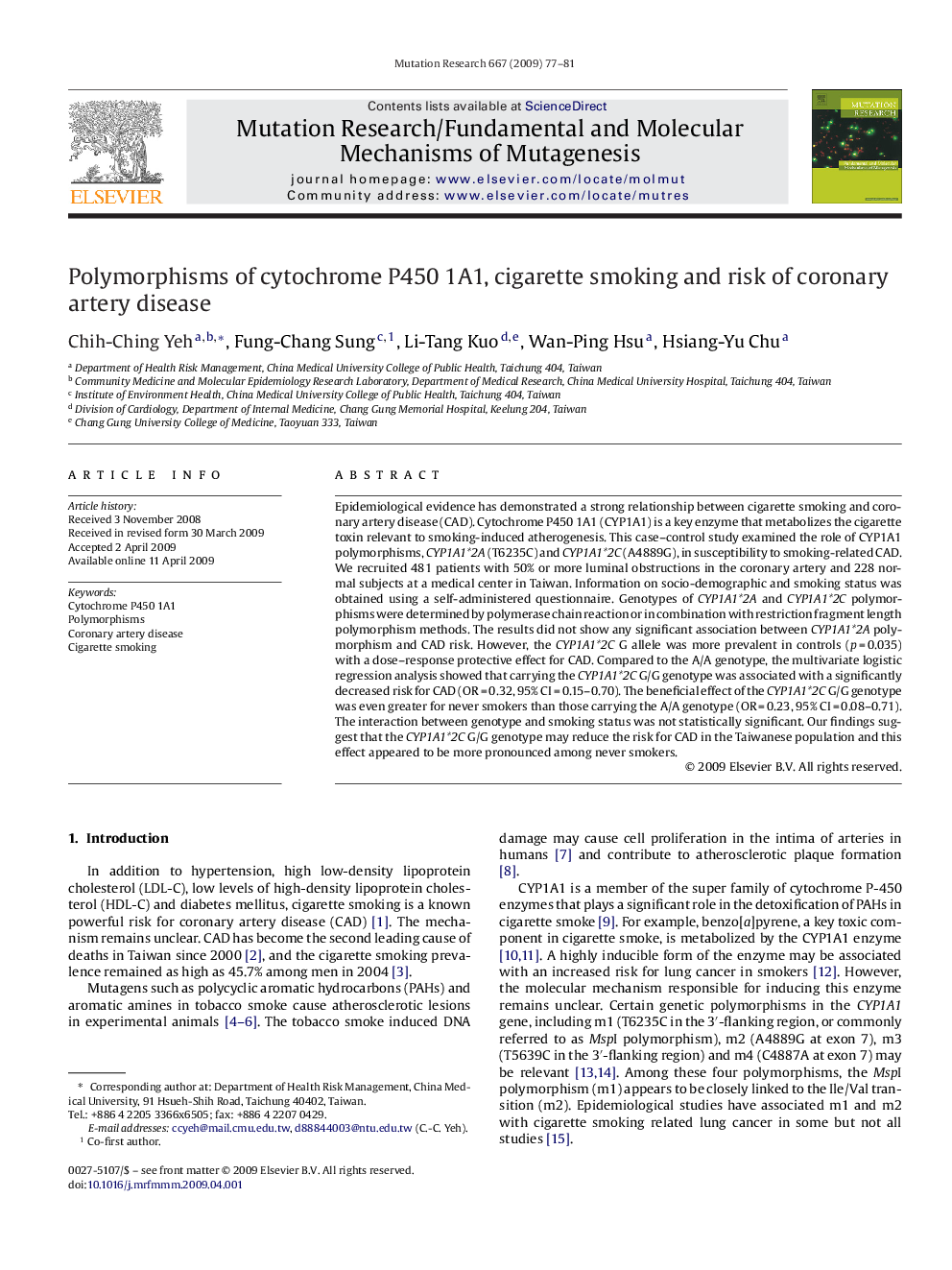| Article ID | Journal | Published Year | Pages | File Type |
|---|---|---|---|---|
| 2146919 | Mutation Research/Fundamental and Molecular Mechanisms of Mutagenesis | 2009 | 5 Pages |
Epidemiological evidence has demonstrated a strong relationship between cigarette smoking and coronary artery disease (CAD). Cytochrome P450 1A1 (CYP1A1) is a key enzyme that metabolizes the cigarette toxin relevant to smoking-induced atherogenesis. This case–control study examined the role of CYP1A1 polymorphisms, CYP1A1*2A (T6235C) and CYP1A1*2C (A4889G), in susceptibility to smoking-related CAD. We recruited 481 patients with 50% or more luminal obstructions in the coronary artery and 228 normal subjects at a medical center in Taiwan. Information on socio-demographic and smoking status was obtained using a self-administered questionnaire. Genotypes of CYP1A1*2A and CYP1A1*2C polymorphisms were determined by polymerase chain reaction or in combination with restriction fragment length polymorphism methods. The results did not show any significant association between CYP1A1*2A polymorphism and CAD risk. However, the CYP1A1*2C G allele was more prevalent in controls (p = 0.035) with a dose–response protective effect for CAD. Compared to the A/A genotype, the multivariate logistic regression analysis showed that carrying the CYP1A1*2C G/G genotype was associated with a significantly decreased risk for CAD (OR = 0.32, 95% CI = 0.15–0.70). The beneficial effect of the CYP1A1*2C G/G genotype was even greater for never smokers than those carrying the A/A genotype (OR = 0.23, 95% CI = 0.08–0.71). The interaction between genotype and smoking status was not statistically significant. Our findings suggest that the CYP1A1*2C G/G genotype may reduce the risk for CAD in the Taiwanese population and this effect appeared to be more pronounced among never smokers.
